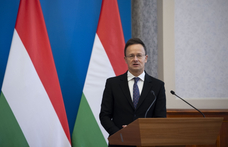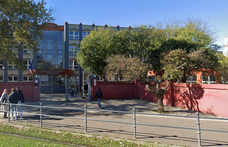"It was hard to persuade the locals to spend their money in shopping centres instead of corner shops and on the market," says Bruno Ettenauer of Bank Austria Creditanstalt of the difficulties of investing in the CEE region in the mid-1990s. Investors were not put off by initial teething troubles, however. Since 1998, a total of EUR17.3bn has been invested in non-residential property developments in the region, with most of that money coming from German and Austrian funds. Investments in offices, shopping centres, hotels and industrial property will probably hit a new high of EUR8bn this year, twice the level of two years before. Experts nonetheless warn that this flood of capital is not sustainable. The high yields that are attracting this capital are collapsing, and tempting investments are becoming more scarce.
Despite this, at this year's Expo Real, Europe's most prestigious commercial property exhibition, there were 30 per cent more CEE exhibitors than last year. Andreas Ridder, regional head at CB Richard Ellis, said at the exhibition: "Investors are being attracted by growth running at almost twice the level of Western Europe. They like the rental demand as well, because 15 years ago there were no Category A office buildings in these countries." In Paris, Madrid and other West European cities, yields fell below 5 per cent last year, but they remain above 6 per cent in the CEE region.
EU membership has generated more interest, but it has also driven yields down, just as it did in the Iberian countries 20 years ago. Spain commanded a 2.5 percentage point yield premium when it joined the EU in 1986, compared to an average 2.2 percentage point premium in 2004 for the countries that joined most recently. But in just one year, total returns fell by 1.75 per cent in Prague and 1.25 per cent in Warsaw. In Hungary, the fall was just under 1 per cent, and Budapest still delivers the best yields, at 6.5 per cent. There are grounds for concern, though: vacancy rates are rising on the Hungarian office market. Something similar happened in Slovakia. An employee of a Munich investment fund explains: "The Bratislava office market is so small that supply could easily grow to twice the level of demand over the next three to five years, and that would lead to a serious crisis."
The hope of lower purchasing prices and higher yields is fueling speculation, with office buildings and shopping centres being snapped up before they even leave the drawing board. The property developer Trigranit, for example, sold Silesia City Centre, its shopping centre development in the Polish city of Katowice, in this way.
Another reason for concern is that investors are expecting rental income to rise. Over the past two years, however, rental rates have kept inside a narrow band of between EUR15 and EUR20 per square metre. Prices are unlikely to rise much beyond that in the near future, given that supply continues to grow spectacularly. In the first quarter of 2006, more rental contracts were signed in Prague and Warsaw than in Frankfurt and Milan: in Prague and Warsaw, a Category A office building can be rented for around EUR17 per square metre, a fraction of prices in Western Europe. In London, the most expensive city on the continent, the average price per square metre for a Category A office is EUR116.
Moscow is an exception in the region: rental rates have risen in recent months. It is no surprise that American pension funds and insurers are heading ever further east. Interest in Romania, Bulgaria and Croatia has grown dramatically. But there are ever more people on the Ukrainian and Russian markets as well. Moscow has become Europe's third largest office space market. Within two to three years, according to Ridder, a full two thirds of the capital flowing into the region's property market will be heading for Russia. The evidence? In a couple of days, a major office space deal is being completed, which will on its own double the total EUR1.3bn that has been invested in Moscow property so far.
ILDA G. TÓTH / MUNICH



















